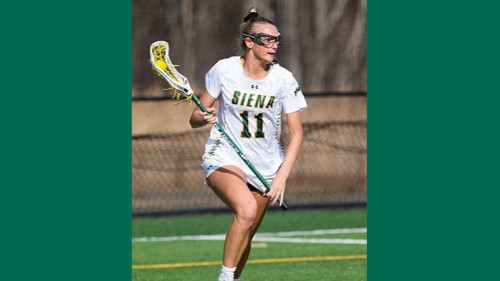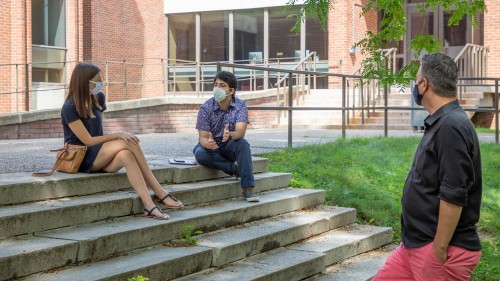
The prestigious British medical journal The Lancet has featured an interview with a Siena nursing faculty member in an article on the shortfalls of electronic health records (EHRs).
Jennifer Thate, Ph.D., assistant professor of nursing, was quoted in “Information overload and unsustainable workloads in the era of electronic health records” in the January 13, 2020 issue.
Thate said the author reached out to her after seeing an article she had published last fall on the topic in the American Journal of Infection Control.
When EHRs were introduced 1970s, they were supposed to make patient care more efficient and safe through electronic prescribing, health information sharing, and documenting treatment outcomes. Thate explained that despite those good intentions, best practices common to EHRs don’t actually reflect communication in clinical practice.
“One of the greatest challenges is that the initial EHR design was not focused on supporting interdisciplinary communication; instead it was focused on information capture and information access,” Thate said in the article. “Now we have a record that has copious amounts of data and information and little evidence as to what information is most salient for important clinical decisions—and where to find this information.”
Thate said the intent with EHRs was to gather accurate information to be shared among health care professionals, facilities and insurers, but the electronic system does not truly reflect the daily communication of providers with each other and their patients.
Thate has of course taken her instruction online for the rest of the semester, teaching the skill and science of nursing at a technological remove necessitated by one of the most widespread pandemics in history. The NYS Education Department has granted Siena and other nursing programs permission to use virtual simulations for clinical education.
“We‘re educating the next wave of nurses, preparing them to go out into a pandemic, and we have to do this in an era of social distancing. This is especially impactful for our seniors who are about to graduate.”
Health care professionals are rightfully being hailed as heroes for working with infectious patients, all while dealing with a rapidly depleting supply of personal protective equipment.
“Nurses have always worked in regular, direct contact with infectious patients. This is what nurses do. It’s what we’ve always done.”
Thate said she is impressed with all of her students, especially those who are getting ready to graduate, and those who recently entered the field.
“They seem very ready to meet the challenges of this pandemic. We want to be sure to properly prepare them so they can leave school and immediately start practicing.”
Unushah Khan ’20, president of Siena’s Student Nurse Association, is currently working as a tech at Ellis Medicine Urgent Care.
“With everything going on now with COVID-19 I think back to Dr. Thate’s informatics class and the realm of telemedicine. Working in the ER during this pandemic highlighted the importance of having patients utilize telemedicine rather than coming into the ER and potentially spreading the virus which was recommended by the CDC.”
Khan said her professor has always been determined to help her students exceed in bedside care with patients, as well as research and informatics.
“Her feedback and support makes me a well-rounded student entering the diverse world of healthcare. I am really thankful to be part of a nursing program that has given me knowledge and confidence, allowing me to do my part of serving others during these tough times.”

